Date
Owner
Revision
Notes
1.0
Initial release
Table of Contents

Date | Owner | Revision | Notes |
|---|---|---|---|
| 1.0 | Initial release | |
Table of Contents | |||
The following quick start guide provides background information about the ClearFog GTR L8 product.
The guide will give a technical overview about the product and by the end of it you should be able to boot an operating system and begin testing your application.
I/Os | 1 x USB 3.0 |
Networking | 8 x 1GbE switched LAN supporting 802.3at/af/bt* (up to type 4) PSE PoE |
Processor | Marvell ARMADA based A385 Dual core Arm Cortex A9 up to 1.3 GHz |
Memory & Storage | Up to 2GB DDR3 |
Display | None |
Misc. | GPIO header |
Development and Debug interfaces | Micro USB |
Power | 10V – 54V when not enabling PoE PSE * |
Expansion card I/Os | 3 x mPCIe (1 x mPCIe supports LTE with SIM holder) |
Temperature | Industrial: -40°C to 85°C |
Dimensions | PCBA: 238 x 130mm |
Enclosure | Extruded aluminum |
(*) 802.3bt supported only on 4 x RJ45 ports (90W each), 802.3at/af is supported on all 8 ports (30W each). |
The following figure describes the ClearFog GTR L8 Block Diagram.
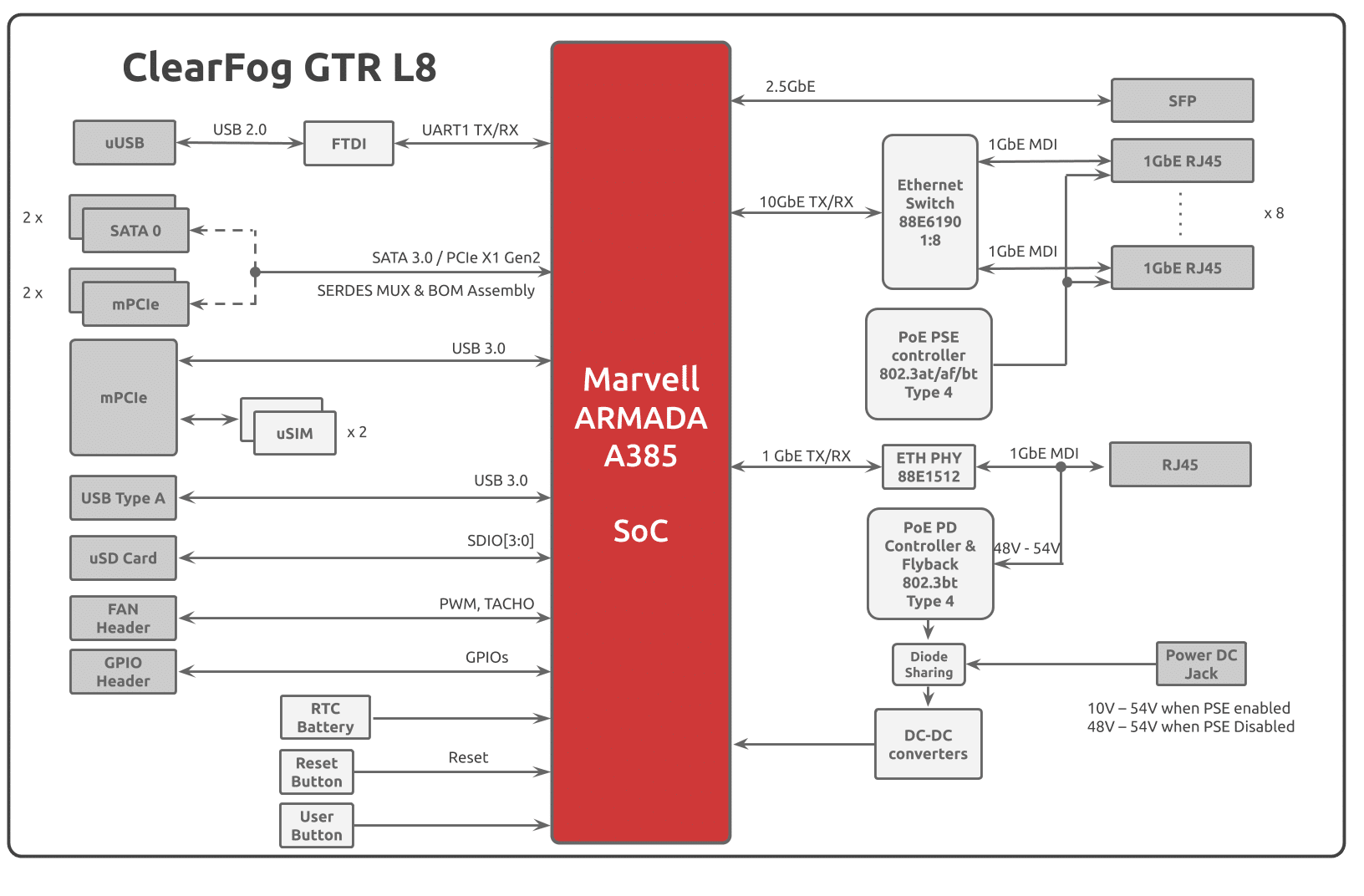
Please see below the features overview of the connector side of the ClearFog GTR L8.
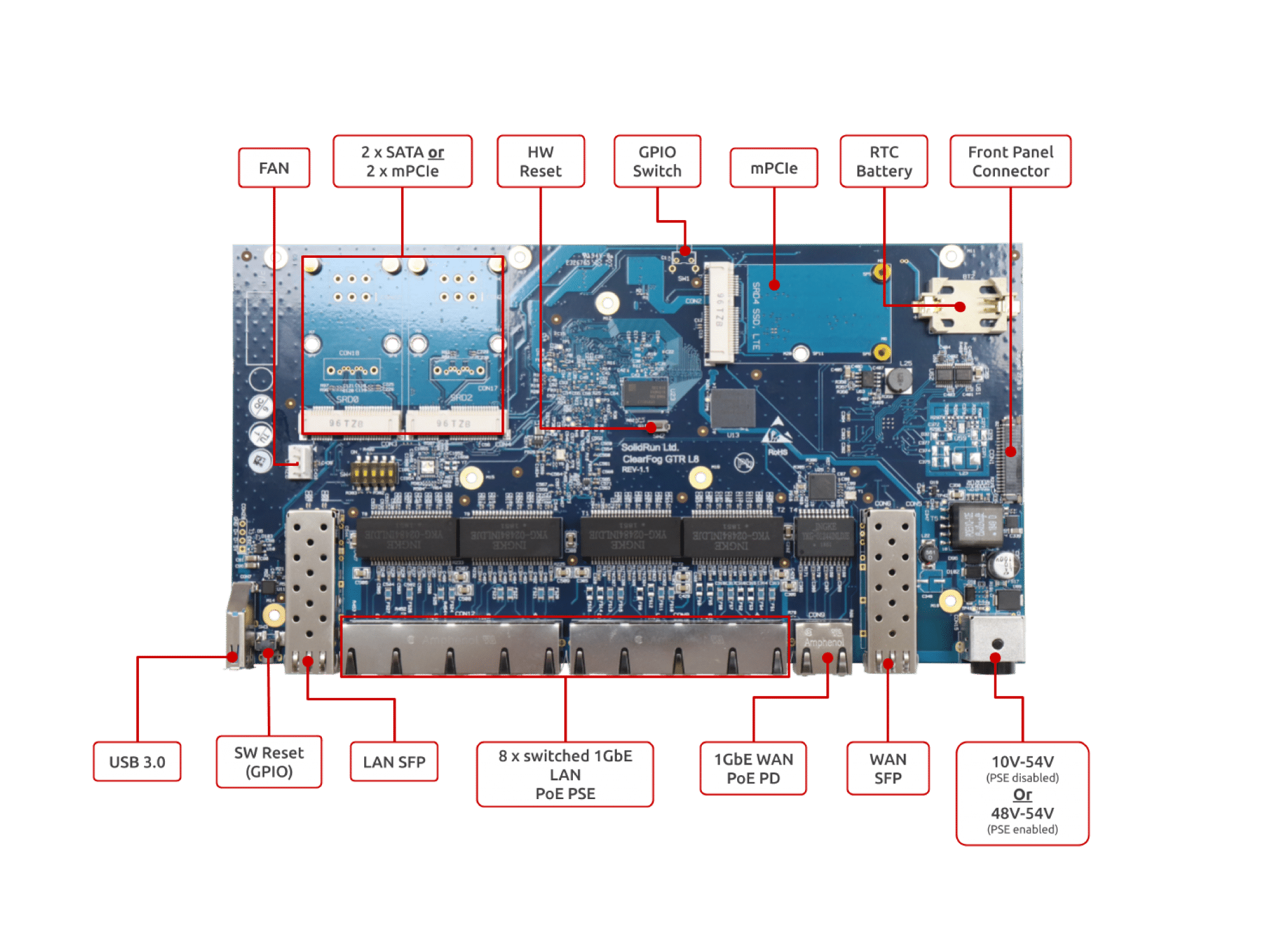
Print side connector overview of the ClearFog GTR L8.
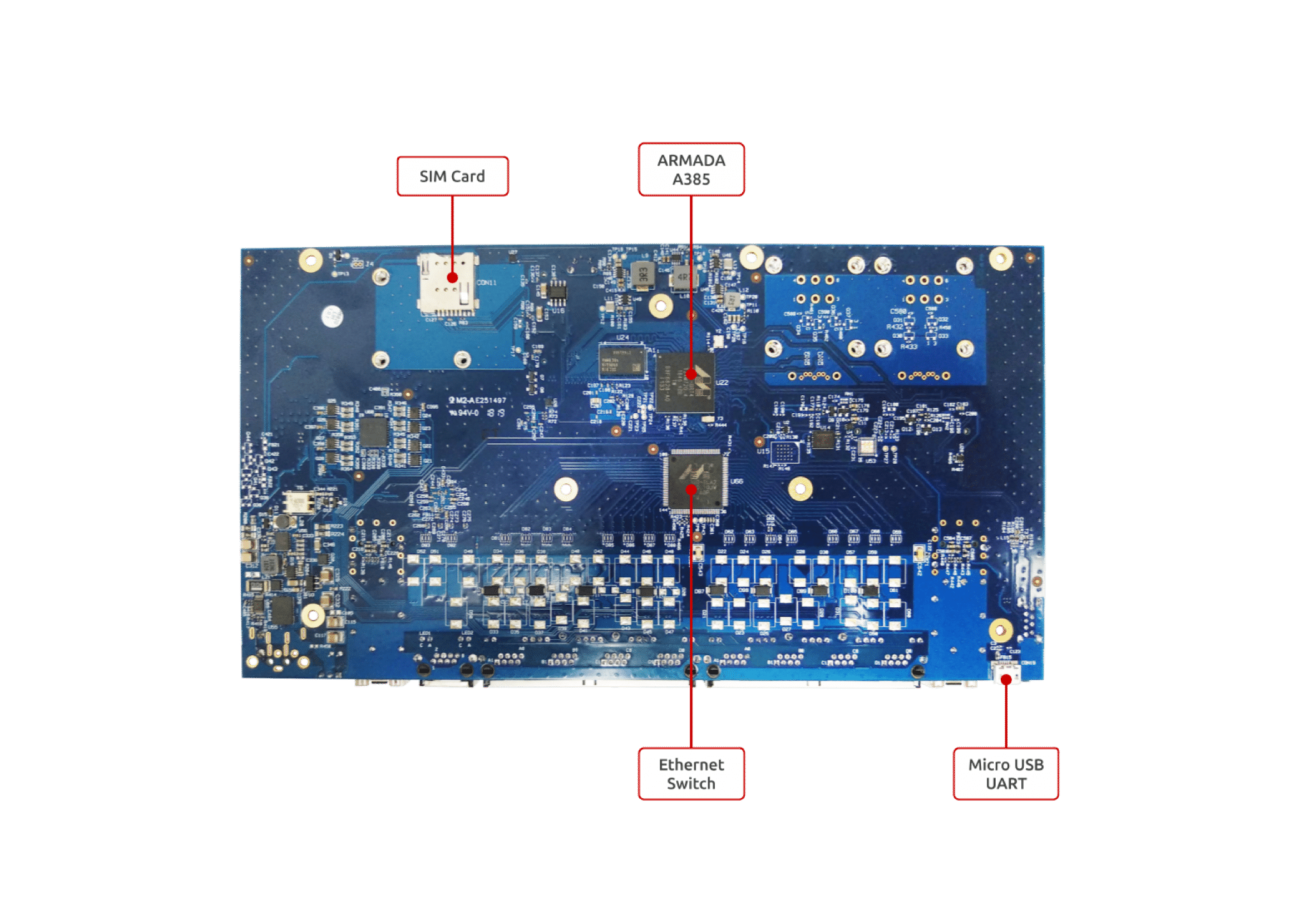
Here is what you will need to power up the board:
Linux or Windows PC
ClearFog GTR L8
48V Power Supply (ClearFog GTR L8 has wide range input of 10V-54V, it is recommended to use 48V)
Micro USB to USB for console, the ClearFog Pro has an onboard FTDI chip.
IP router or IP switch
The ClearFog GTR L8 has a wide range of 10V-54V input power supplies:
|
The following is a list of industry-standard cables, sorted by type, with the necessary compliance requirements that have been proven to work well with the ClearFog product family (ClearFog Base / Pro).
These examples are the cables which SolidRun uses for testing, and should provide enough information to source products from your preferred cable vendor.
Ethernet cable: Monoprice 24AWG Cat6A 500MHz STP
USB Cable: SuperSpeed USB 3.0 Type A Male to Female Extension Cable in Black
SFP connector: GigaLite GE-GB-P1RT-E SFP module with Monoprice 24AWG Cat6A 500MHz STP cable
Before powering up the board for the first time it is recommended to select the boot media. In order to configure the boot media, please refer to ClearFog GTR Boot Select .
The switches on the boot source selector must be set as follows:
Switch 1 | Switch 2 | Switch 3 | Switch 4 | Switch 5 |
OFF | OFF | ON | ON | ON |
The following shows how to set the switches on the boot source selector:
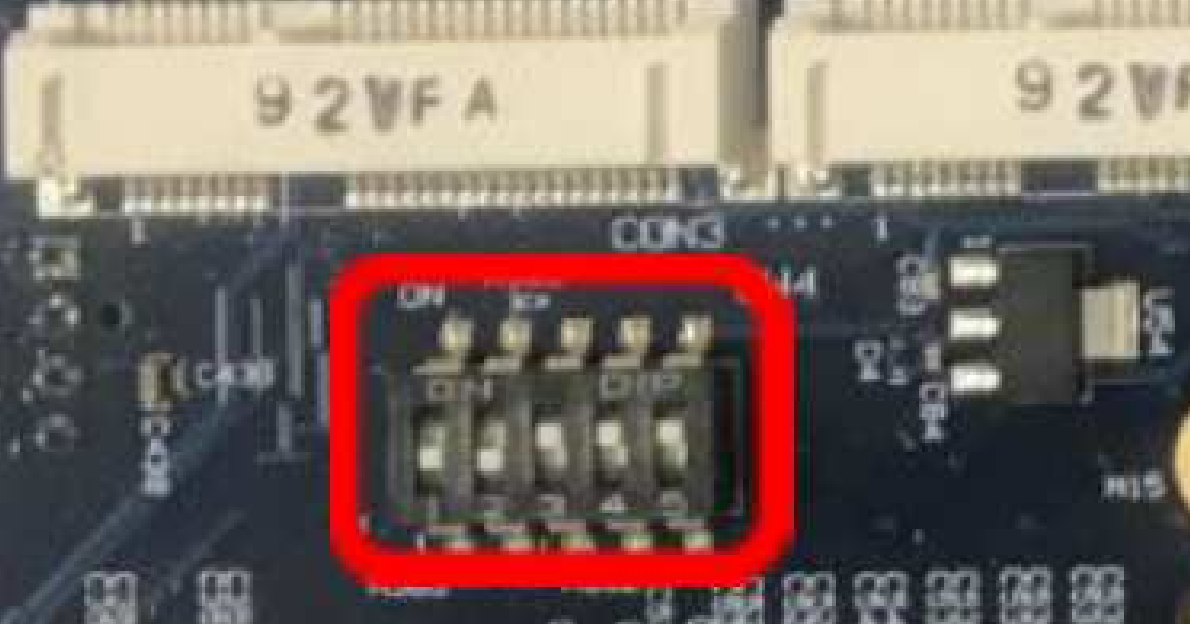
The ClearFog GTR including U-Boot into eMMC by default. Note: Here can find the U-Boot Binaries - SolidRun Images |
Once you set the switches, you can apply the following for booting from an eMMC card.
1. Downloading the Debian image
wget https://solid-run-images.sos-de-fra-1.exo.io/A38X/Debian/sr-a38x-debian-buster-20200114.img.xz |
For more Debian releases, please visit Debian Releases for Armada 38X.
2. Writing the image to the USB Disk card
Use the following commands for writing the image to an USB Disk:
xz -dc sr-a38x-debian-buster-20200114.img.xz | dd of=/dev/sdX bs=4k conv=fdatasync |
For more information, please visit Flashing an SD Card .
Note: Plug a USB Disk into your Linux PC, the following assumes that the USB is added as /dev/sdX and all it’s partitions are unmounted.
Note: Plug a USB Disk into your Linux PC, the following assumes that the USB is added as /dev/sdX and all it’s partitions are unmounted.
3. USB Disk insertion
Please Insert the USB Disk into your device.
4. Power connection
Connect your power adapter to the DC jack, and then connect the adapter to mains supply.
5. Serial Connection
Please insert the micro USB into your device, then you can refer to Serial Connection for installing necessary serial connection software in Linux/Windows.
Once you installed the necessary serial connection software, you should be able to see the following:
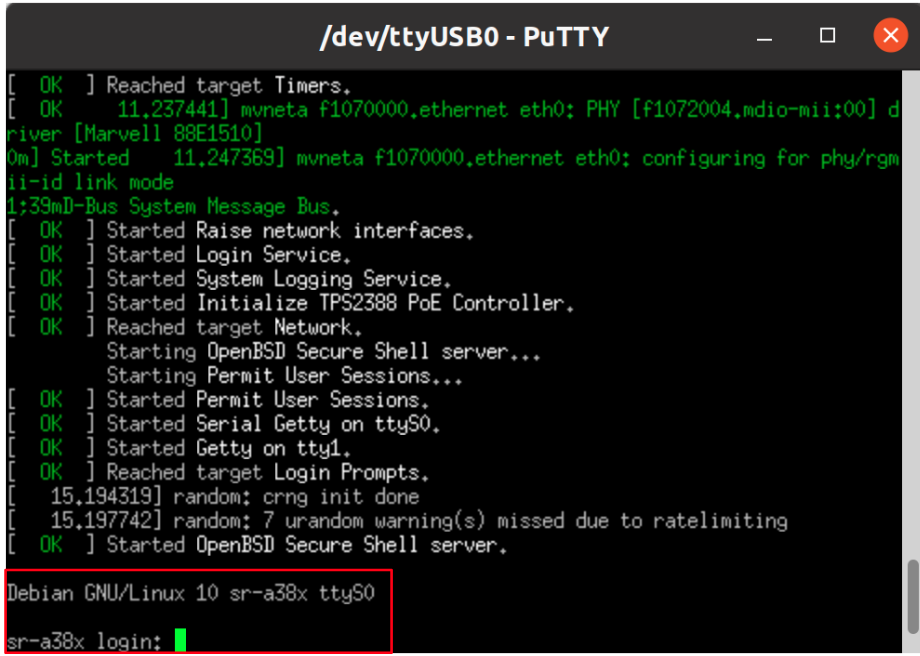
In order to be able to log in , please insert “debian” as a username and password as follows:
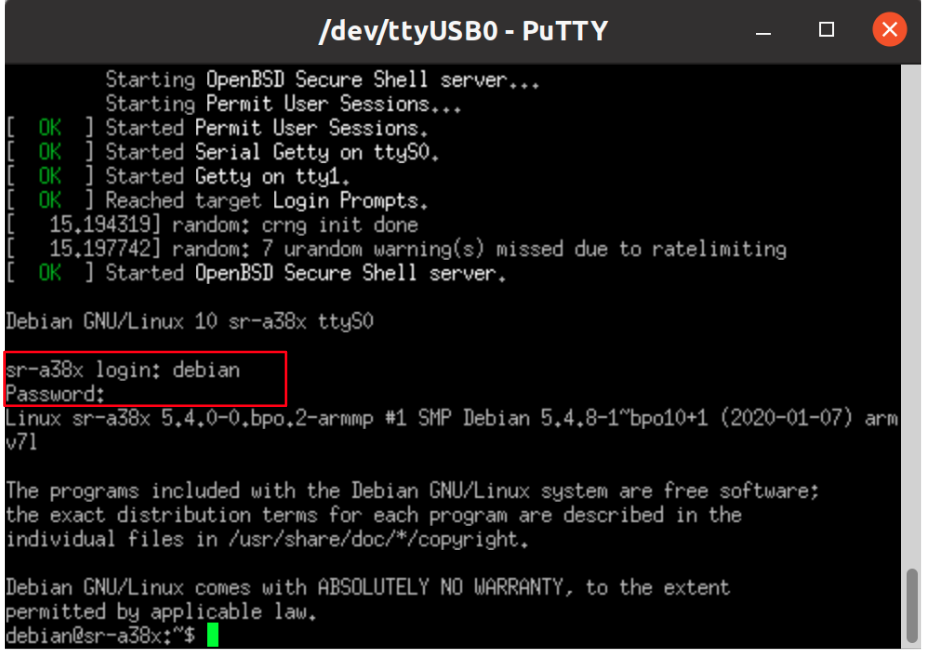
For some SFP modules that work on SolidRun networking hardware platforms, please refer to SFP Modules .
It is possible to utilize a Cellular connection by inserting a SIM card into the SIM card slot. Please observe that a GSM Cellular modem needs to be installed utilizing the mini PCIe connection in order to exploit the cellular connection.
OS |
|
|---|---|
 | |
 | |
 | |
 |
U-Boot Build - A38X U-Boot
Kernel Build - A38X Kernel
